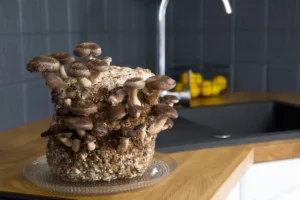10 different types of oyster mushroom benefits
Everything you need to know about different types of supermarket mushrooms and how to cook them. Learn how to use portobello, shiitake, oyster and more
Mushrooms make a great addition to your cooking, but which supermarket varieties work best in which dishes? Our guide explains how to pick the best mushrooms for home-cooking.
Edible mushrooms range widely in terms of flavour and texture, so they’re suited to a variety of dishes, from stir-fries and stews to salads. While some have a sweeter taste, others lend a more nutty flavour. Some varieties also provide a meaty texture, great for bulking out hearty stews and casseroles.
As well as being low in calories and fat, mushrooms are also a great plant-based source of vitamin D, fibre and prebiotics to support gut health.

For more information on storing and cooking mushrooms, see our guides on how to freeze mushrooms and how to microwave mushrooms. Plus, find more meal inspiration in our collection of mushroom recipes.
What are the different oyster mushroom benefits ?
1) White button
The prefix ‘button’ is used to describe small-sized mushrooms. It’s applied to a few varieties, but mostly to white. Button mushrooms are best left whole or halved, and are the variety you should add to a warming stew, chicken casserole or a seasonal braise. See our ultimate mushroom collection for recipe ideas.
2) Closed cup
These medium-sized white mushrooms are the most common type. They’re a good all-rounder, and can be eaten raw in salads or fried for sauces or stuffings. Try using them in our chicken & mushroom puff pie.
3) Open cup/flat
Large and white, their size and shape makes them ideal for roasting whole – meaning they’re great mushrooms to use as a veggie alternative to a meat burger. Trying using open cup mushrooms in this caramelised red onion, prosciutto & mushroom tart.
4) Chestnut

These brown oyster mushroom benefits are interchangeable with closed cup, but have a slightly deeper, nutty flavour. They’re great in our mushroom and aubergine pizza pie, as well as our top-rated mushroom risotto.
5) Portobello
These are best for stuffing and baking, but their meaty texture makes them a great toast topper when sliced and fried. Try our crunchy pesto & mozzarella baked mushrooms or see our portobello mushroom collection for more inspiration.
6) Shiitake
Japanese in origin, these mushrooms are slightly oaky. Best for oriental broths and soupy noodle dishes, like these gingery shiitake noodles.
7) Oyster
With an oyster shell shape, these are easier to tear than slice, and their subtly sweet flavour works well in pasta dishes and stir-fries. Bake them in our Russian chicken & mushroom pies with soured cream & dill.
8) King oyster
New to shops, this mushroom has a thick, meaty stem that can be sliced and griddled or fried like meat.
9) Porcini oyster mushroom benefits
The king of the wild mushroom come under several names. ‘Porcini’ is their Italian name, cep is the French and the lesser used Penny Bun is the English. Because they are wild and seasonal, fresh porcini are hard to find and command high prices, but can be sliced and fried like any other mushroom. Dried porcini make a good, cheaper, replacement but need rehydrating in hot water before cooking, which gives you the added bonus of a flavour-packed mushroom stock, like in this highly-rated creamy oyster mushroom benefits soup.
10) Enoki mushrooms
These very thin, white mushrooms are used predominantly in Japanese and East Asian cooking. They are grown in clumps that they are sometimes still attached to when buying. They work particularly well in broths and stir-fries.